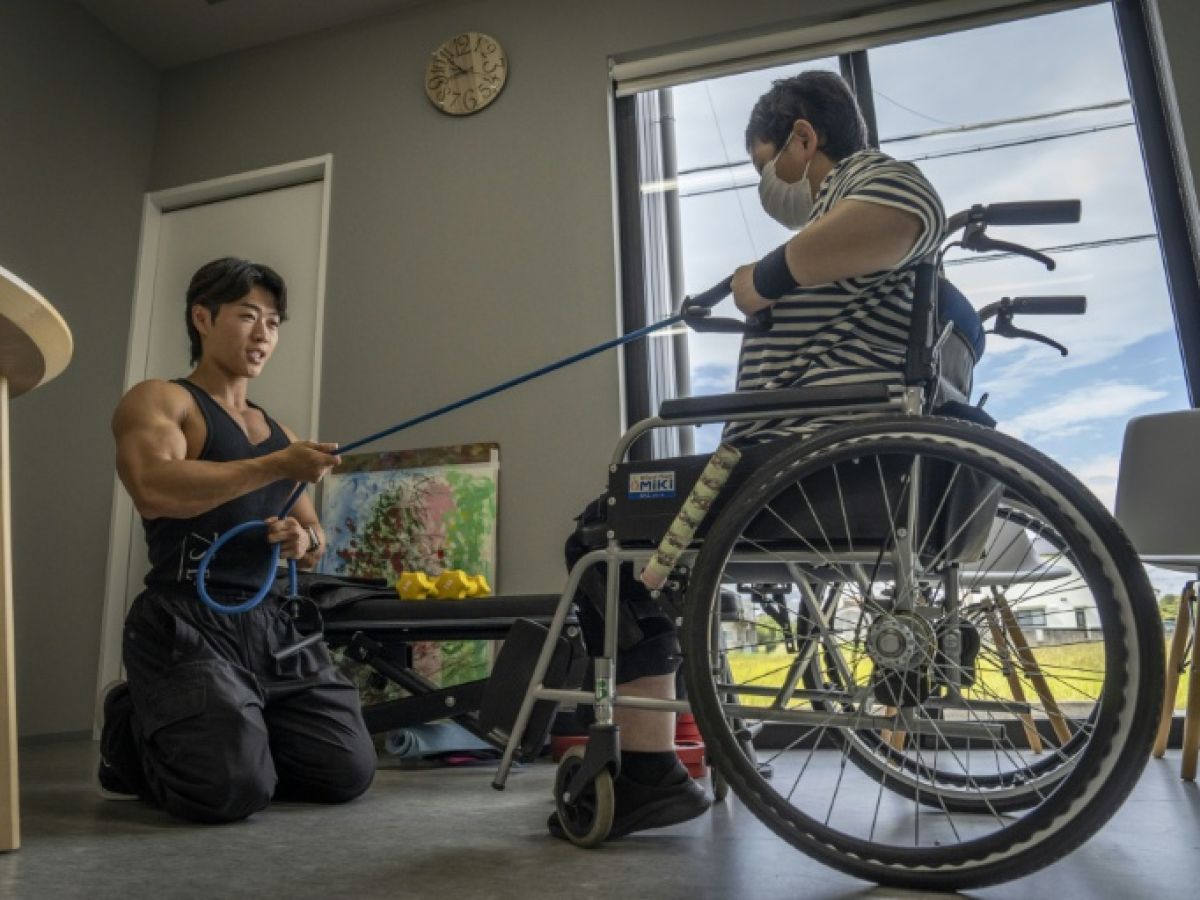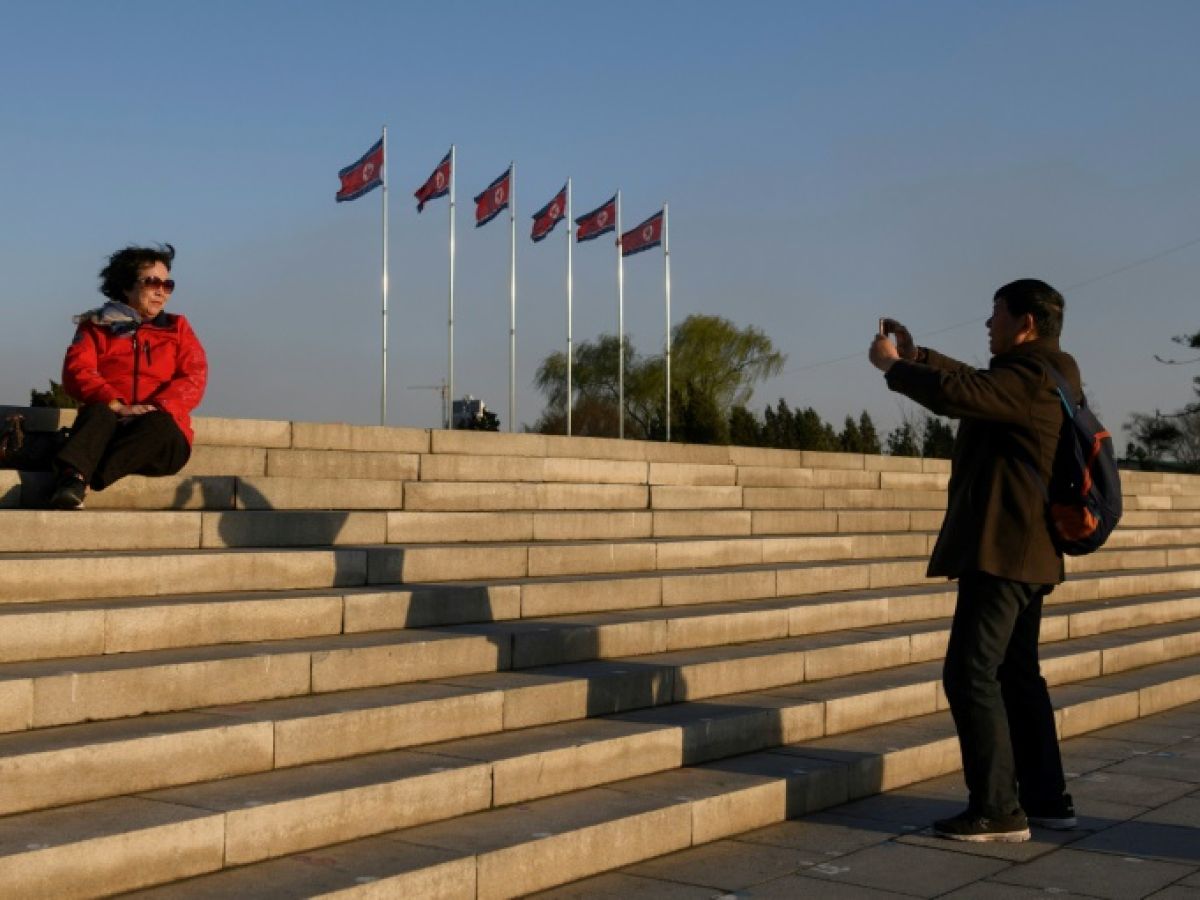With bulging muscles and a benevolent smile, Takuya Usui helps a resident into her wheelchair in a care home in central Japan, embodying a new generation of male caregivers recruited to address the shortage in a rapidly aging country.
Held back by gender stereotypes and unattractive salaries, young men have long shunned the care sector.
But the Nagoya-based company Visionary has found an original formula to attract them: hiring bodybuilding enthusiasts, enticed by benefits such as paid weight training hours and subsidies for protein drinks.
“Before, this profession didn’t appeal to me at all,” admits Takuya Usui, a former sports coach. “But when I was told I could use my muscles, I thought: why not?”
Dressed in a black tank top that highlights his physique, he effortlessly lifts 65-year-old Madoka Yamaguchi to help her eat, brush her teeth, and put drops in her eyes.
"He's so muscular that I'm never afraid he'll knock me over," smiled this patient at the Visionary-run care center for disabled people.
Japan has the second oldest population in the world after Monaco, and faces an acute shortage of caregivers: nearly four positions are available for each applicant.
The Ministry of Labour predicts a shortage of 570,000 home care workers by 2040, due to wages that are too low for physically demanding work.
Men remain a minority in the sector, where more than 701% of jobs are held by women over 40.
– “I was a UFO” –

"When I started, I was an oddity: young and a man," recalls Yusuke Niwa, the boss of Visionary, now 40 years old.
He then realized that "being cool" was essential to attracting the interest of young men. "Bodybuilders are extremely photogenic and embody hard work," he points out.
In 2018, ten years after founding his company, Yusuke Niwa launched the "muscular caregivers" concept to break down stereotypes. Until then, Visionary had struggled to recruit. But this unconventional campaign attracted many candidates, particularly young men.
The company forecasts revenues of 2.2 billion yen (almost 12.4 million euros) for the current fiscal year, ten times more than before 2018.
The majority of recruits are fitness enthusiasts, but an elite group of professional bodybuilders enjoys additional benefits, such as two hours of paid weight training per day.
Among them, Hokuto Tatsumi praises an "ideal working environment for bodybuilding enthusiasts." For this 27-year-old former soldier, the discipline of bodybuilders—daily workouts, strict diet—is "an asset" for a demanding profession.
Each year, approximately 100,000 Japanese people leave their jobs to care for a dependent relative. By 2030, another 300,000 will need to juggle work and caregiving, which could cost the Japanese economy nearly 9 trillion yen (50.7 billion euros), according to authorities.
This is "a huge loss" of human potential, warns Yusuke Niwa, calling on the sector to reinvent itself.
For the past two years, Takuya Usui has developed a special relationship with Ms. Yamaguchi, who is passionate about painting and beads. "Madoka can't use her hands, but she paints with her mouth. It's amazing," he says admiringly.
Having initially come for bodybuilding, "I discovered that wellness is much more than that."

